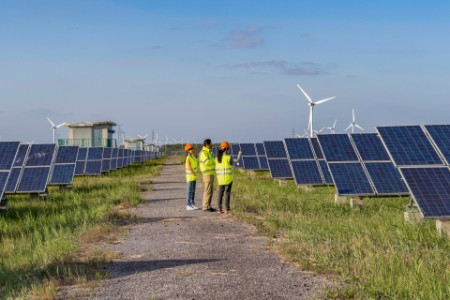The EY Future Consumer Index (July 2021)6 found that sustainability may mean different things to different consumers across the globe. For some, sustainability equates to climate, while for others it could be about health and well-being, or about clean water or clean energy.
Private family enterprises across other industries are also making progress in their sustainability disclosures and actions. Bosch, a 125-year-old advanced manufacturing and mobility giant based in Germany, with operations spread across 400 locations across the world, is now aligned to GRI reporting standards. The company has been carbon neutral since Q1, 20207. It recently added sustainability as a key award category in its Bosch Supplier Awards, as part of its attempt to tackle sustainability across its supply chain. Any supplier that wants to win this award must demonstrate top ratings in the Carbon Disclosure Project (CDP). Bosch has also set itself SBTi targets that will involve increasing renewable energy usage, from 14% in 2018 to 100% in 2030 and reduction in greenhouse gas (GHG) emissions that would limit global warming to 1.5 °C.
What drives these families to commit to sustainability?
1. Family reputation and legacy
Family enterprises, and in particular privately held ones, have less regulatory pressure to act on sustainability. However, as sustainability becomes a key reputational determinant, these companies are leading the agenda to protect their reputation and legacy.
2. Peer group inspiration
Family enterprises and offices across geographies, industries, and multiple generations are incorporating sustainability into their long-term outlook. They offer inspiration to other families looking to adopt a sustainability framework.
3. Reduction in “intention gap”
In the past, customers were found to be concerned about sustainability, but not willing to pay more for a sustainable product or service – this was labelled as the “intention-gap”8. Gradually, the share of customers willing to pay for sustainable products and services is on the increase. According to the EY Future Consumer Index, July 2021, “43% of global consumers want to buy more from organizations that benefit society, even if their products or services cost more. And 64% are prepared to behave differently if it benefits society.”
The authors would like to thank Ashish Gambhir, Dom Kelleher, Marko Nikolic and Joanne Warrin for their contributions to this article.


